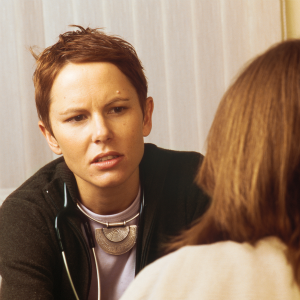Unfortunately things sometimes go wrong in healthcare. Even when things seem to go right, patients may still feel disappointed or upset with the care they have received. However, apologies can go a long way to preventing complaints and making patients feel better, even though they can be difficult. Here is some advice on saying sorry.
What are the benefits of apologising?
Prompt and effective management of an adverse event, including an apology, has many benefits. The patient will receive recognition of the distress they feel and have opportunity to ask questions. Investigation and learning can then ensue to minimise the risk of the same error happening again.
Contrary to popular belief, a well framed apology can help prevent a complaint. In fact, a failure to apologise was cited as the reason that more than a third of NHS patients escalated a complaint to the Parliamentary and Health Service Ombudsman in 2014 – 15.¹
An acknowledgment of a patient’s distress should be provided if a patient expresses that they are unhappy with their care even if the GP feels the care has been appropriate. It is important to remember that an apology is not an admission of guilt when responding to concerns in this way.
An apology can help defuse a potentially fraught and emotionally charged situation, and is an acknowledgement that something has gone wrong. It’s also an expression of empathy which can be exactly what a patient is seeking. However, it must be phrased correctly, avoid making factual assertions (unless you are sure of these) and ensure the patient understands the next steps.
How can GPs say sorry without sounding like they are admitting an error?
A genuine apology offers a sensitive and empathetic acknowledgement of a patient’s distress. It can be an extremely useful communication tool and help neutralise any animosity the patient feels towards you, and if framed correctly, is not the same as admitting that you did something wrong or conceding liability.
We suggest saying, for instance, ‘I am sorry this happened to you,‘ rather than, ‘I am sorry I caused this to happen to you, it’s my fault.’
Do GPs have a legal obligation to say sorry following an adverse incident?
Under the statutory duty of candour, doctors in England have a legal obligation to be open, honest and to offer an expression of sorrow and regret following an error. The legal position differs in other parts of the UK. GPs also have a professional and ethical duty to do so when things go wrong across all jurisdictions of the UK.²
When should GPs say sorry?
It is important that patients and their families receive a meaningful and timely apology when an adverse incident occurs. The apology should be offered as soon as it becomes apparent that something has gone wrong, or as soon as the patient expresses that they are unhappy with their care. While it may be some time before all the facts are understood, this should not hinder a prompt apology and explanation that the circumstance are yet to be determined.
If something goes wrong when treating a patient, what process should you follow?
The first step is to ensure the patient’s safety. You should then listen carefully to your patient to understand exactly why they are upset. If they are unhappy, it is likely they will want to have their story heard and their distress acknowledged.
An open and truthful discussion should follow, in which it is important to demonstrate an appropriate expression of regret or sorrow. Once you have all the facts, a full explanation of what happened and any anticipated consequences should also be conveyed so the patient is prepared for what to expect going forward. If required, propose a management plan for ongoing care. If you can’t provide this, explain how the patient can obtain further help and assist with these arrangements by providing contacts and resources. Depending on the circumstances, this process may require several meetings with the patient and / or their family (with the patient’s consent to do so).
A full and objective review of the event should always be carried out, with the patient being informed as to any lessons that can be learnt moving forward. A commitment should be made to understand and learn from what has happened to reduce the likelihood of it recurring and happening to someone else.
You should also ensure that detailed notes are made to ensure it is clear what has happened. If the situation is complex, or you would like advice, it would be pertinent to discuss your particular circumstances with your medical defence organisation.
Dr Gordon McDavid is a medicolegal advisor at Medical Protection
References
[1] Complaints about acute trusts 2014-2015, Parliamentary and Health Service Ombudsman, September 2015
[2] Good Medical Practice, General Medical Council, and Openness and honesty when things go wrong: the professional duty of candour, GMC and Nursing & Midwifery Council
Pulse October survey
Take our July 2025 survey to potentially win £1.000 worth of tokens












